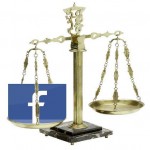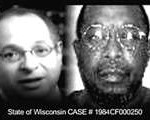Add Judges To The List of Professionals Who Must Take Care In Using Facebook
 Professor Lisa Mazzie posted a blog entry back in September about the use of Facebook and other social networking websites by lawyers. The post shed light on the trouble an attorney can face when the substance of his or her webpage falls short of professional standards. As Professor Mazzie explained, postings that “criticize” judges, “reveal” client details, or “belie” statements made before a court can land an attorney in hot water.
Professor Lisa Mazzie posted a blog entry back in September about the use of Facebook and other social networking websites by lawyers. The post shed light on the trouble an attorney can face when the substance of his or her webpage falls short of professional standards. As Professor Mazzie explained, postings that “criticize” judges, “reveal” client details, or “belie” statements made before a court can land an attorney in hot water.
Those facts should not surprise present and former Marquette students: we were presented with the professional dangers of social networking during new student orientation.
It likely was only a matter of time, but it seems that state ethics committees have turned their attention to the judiciary. The Florida Judicial Ethics Advisory Committee released an opinion last month that, among other things, finds it inappropriate for a judge to “friend” lawyers on social networking sites when those lawyers may appear before that judge.

 Apparently, the Wisconsin Supreme Court is not the only one sharply divided on an array of issues and fighting over questions of recusal. In Michigan,
Apparently, the Wisconsin Supreme Court is not the only one sharply divided on an array of issues and fighting over questions of recusal. In Michigan,  At last month’s
At last month’s